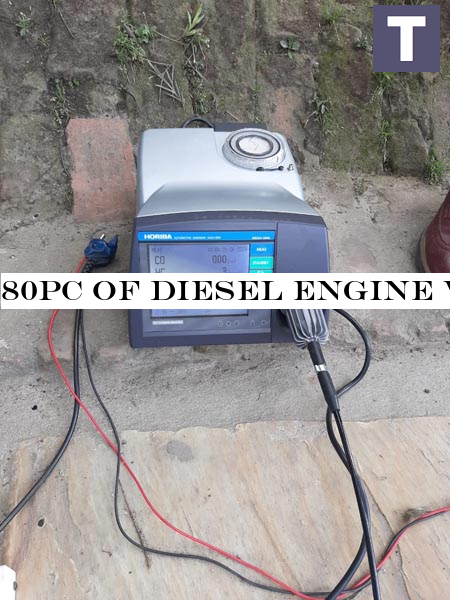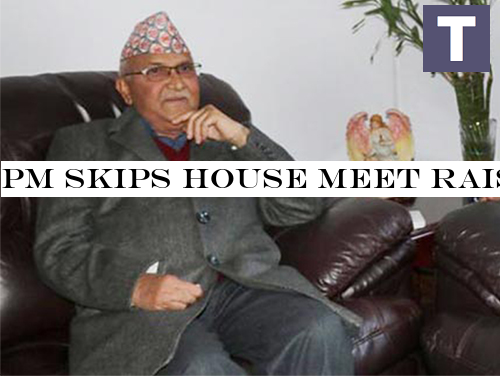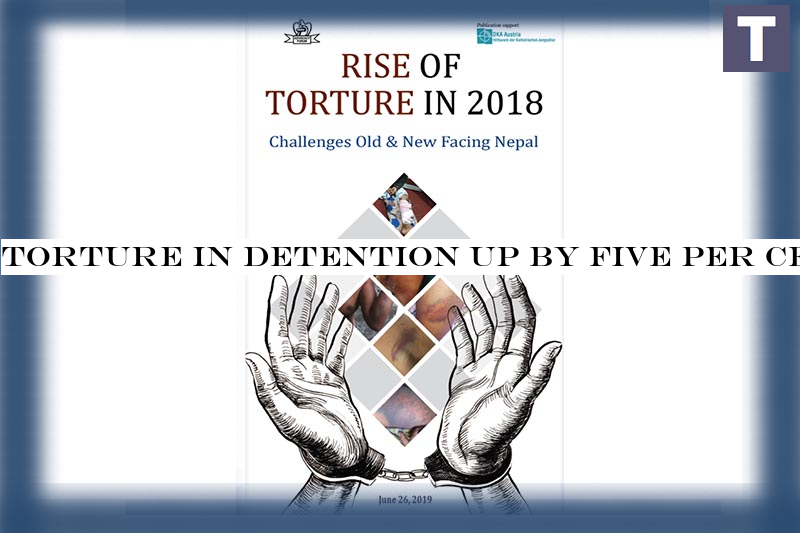Music
Trailers
DailyVideos
India
Pakistan
Afghanistan
Bangladesh
Srilanka
Nepal
Thailand
Iraq
Iran
Russia
Brazil
StockMarket
Business
CryptoCurrency
Technology
Startup
Trending Videos
Coupons
Football
Search
Download App in Playstore
Download App
Best Collections
Nepal
Kathmandu, June 25
It has now become mandatory for people migrating for foreign employment to get their health insured as stipulated by health insurance rules.
A person leaving for foreign employment shall have to submit a copy of health insurance ID card along with his/her work permit to the Department of Foreign Employment, as per Rule 4. This provision shall not be compulsory in those districts where health insurance programme has yet to be implemented.
The Health Insurance Act-2017 requires every Nepali citizen to get his/her health insured. The Health Insurance Board shall provide an ID card to members of a family insured, by issuing an insurance policy.
The ID card is valid for one year. Premium amount Rs 2,500 per year covers insurance for five members in a family. Three thousand five hundred rupees has been fixed for a family having more than five members. Each family will be entitled to health facilities worth up to Rs 200,000 in a year.
&If a person enjoys health facilities covering the limits of the insured amount before completion of a year, he/she shall not be entitled to any health facilities for the remaining period of that particular year,& read the rules. Under the health insurance programme, the insured shall enjoy services like nutrition, yoga, psycho-social counseling, vaccination, family planning, safe motherhood, out-patient and emergency health services, operation, medicines, curative and preventive services, rehabilitation and ambulance service. The insurance programme doesn&t cover health-related equipment like spectacles and hearing aid and plastic surgery.
According to the rules, an insured person is free to choose a service provider. In an event where the chosen service provider is unable to provide necessary service to him/her, it shall refer the insured person to other service provider.
The rules also have a provision of granting exemption in premium amount. &If the insured members of a family have not received any services or facilities in a particular year, such a family shall be entitled to enjoy per 10 cent exemption in premium amount, the next year.
The Board shall pay the medical bill of the insured to the service provider from the Health Insurance Fund on the basis of per case rate or per service fee. The insured may file a complaint at the Board if he/she thinks that the service provider refused to provide service or did not deliver quality service, according to the rules. Any service provider found guilty during investigation shall be liable to a fine of up to Rs 25,000 and a compensation to the insured, equivalent to the amount.
As per the rules, the federal government, provincial government or local government shall bear 100 per cent premium amount for a family with an ID card under the category of ‘very poor& and family that have fully disabled, leprosy and HIV infected members.
The post Health insurance mandatory for migrant workers appeared first on The Himalayan Times.
- Details
- Category: Nepal
Read more: Health insurance mandatory for migrant workers
Write comment (94 Comments)KATHMANDU: As many as 80 per cent of the diesel engine vehicles that underwent a sudden emission test failed the trial held at Bhadrakali on Tuesday evening.
The test was jointly conducted by the Department of Environment and Department of Transportation Management (DoTM) in association with the Metropolitan Traffic Police Division.

Samples of emitted-gases were checked which led to a conclusion that more than 80% of the diesel engine vehicles did not meet the minimum requirements, thus failing the pollution test. On the contrary, 80%-90% of the petrol engine vehicles passed the trial, informed Environment Inspector Rajeshwor Paudel who was in the midst of the test while combating the plumes of smoke emitted by vehicles.
According to Paudel, different sets of devices are used for the inspection of diesel and petrol engines. The levels of carbon monoxide and hydrocarbon are measured in the diesel engines whereas smoke opacity is the standard for measurement in the petrol-run vehicles.
Diesel engine vehicles having more than 3% carbon monoxide and 1000 ppm hydrocarbon do not pass the pollution test. Similarly, Petrol engine vehicles having smoke opacity more than 62 Hsu fail the test, he added.

Vehicles failing the emission test were slapped with Rs 1000 in fine along with having their blue books and licenses seized. The vehicles will now have to obtain a green sticker in order to get back the documents to ply the roads again. The fined vehicles must go through another test at the DoTM, after taking care of the existing issues with the maintenance of their respective vehicles, in order to receive the green sticker.
During the test, all kinds of four-wheelers &government, public and private& were tested.
The government has made it mandatory for all vehicles to get a green sticker which indicates that the vehicles have passed the emission test. Vehicles are required to go to the DoTM annually for the emission test and for the renewal of the green sticker.
The post 80pc of diesel engine vehicles fail ‘surprise& emission test appeared first on The Himalayan Times.
- Details
- Category: Nepal
Read more: 80pc of diesel engine vehicles fail ‘surprise’ emission test
Write comment (93 Comments)Kathmandu, June 25
Ministry of Health and Population on Monday formed a high level committee to probe into leakage of radiation from CT scan room of Bir Hospital.
It has formed a committee comprising Baburam Khanal, member secretary at the Ministry of Health and Population, Dan Bahadur Karki, professor of Radiology at Patan Academy of Health Sciences, Bio-medical Engineer Padma Mishra and Senior Medical Superintendent Hemant Ojha at the Department of Health Services to inquire into the case.
Karki has been recommended by PAHS after the ministry asked it to send a radiologist to probe the incident. The Ministry of Health and Population has asked the committee to submit its report after a week, said Bhawanath Khatiwada, under-secretary at MoHP.
Bir Hospital had shut down its CT scan service on June 21 after radiation was found leaking from its room.
The hospital had closed its service on the recommendation of Nepal Academy of Science and Technology after a monitoring team from NAST found higher level of radiation in areas around the CT scan room. It has suggested the hospital should adopt protection measures against radiation leakage.
The monitoring team on June 17 had concluded that the level of radiation was 10 times more than the permissible level.
The post Committee formed to probe radiation leakage at Bir Hospital appeared first on The Himalayan Times.
- Details
- Category: Nepal
Read more: Committee formed to probe radiation leakage at Bir Hospital
Write comment (99 Comments)Kathmandu, June 25
Prime Minister KP Sharma Oli today skipped the question-answer session of the House of Representatives citing ‘busy schedule&, riling lawmakers, who have long been complaining about the premiernonchalant attitude towards the Parliament.

Prime Minister and Nepal Communist Party (NCP) Chair KP Sharma Oli in Kathmandu, on Friday, December 15, 2017. Photo courtesy: Dahalsecretariat
Oli was supposed to answer lawmakers& questions on allocation of next fiscal yearbudget for the Office of the Prime Minister and Council of Ministers, the PresidentOffice, the Vice-presidentOffice and the National Planning CommissionSecretariat. He was also supposed to justify budget allocated for the Ministry of Culture, Tourism and Civil Aviation, as he has taken that portfolio since the demise of tourism minister Rabindra Prasad Adhikari.
In his absence, Finance Minister Yubaraj Khatiwada answered questions raised by lawmakers.
&PMabsence is a tell-tale sign of him not being responsible towards the Parliament,& said Prem Suwal, a lawmaker from the Nepal Workers and Peasants Party.
PM Oli has not entered the House since June 18 when he was barred from speaking by the opposition Nepali Congress lawmakers. The NC had obstructed House that day demanding that its president Sher Bahadur Deuba be allowed to present his views prior to allowing PM Oli to speak. But the House speaker denied NCrequest, leading to cancellation of the meeting.
Since that day, the House of Representatives has convened five meetings. But PM Oli has attended none.
&The PM is increasingly becoming negligent in his duties towards the Parliament,& said NC lawmaker Laxmi Pariyar.
&He visited Europe without informing the Parliament. He didn&t even brief us about his Europe visit after returning to the country. Instead, he held a press conference to brief the media about his visit. It appears the PM wants to avoid lawmakers.&
Oli, according to his press adviser Kundan Aryal, had made up his mind yesterday to attend todayHouse meeting. &But he had to cancel the plan today as he was occupied with official work. Thatwhy he asked the finance minister to answer questions on his behalf,& Aryal told THT. &He did not skip the meeting on purpose.&
In parliamentary system, the prime minister is elected by the House. &So, the person should be responsible towards the House and attend its meetings,& said former secretary general of the Parliament Surya Kiran Gurung.
When late PM Manmohan Adhikari was admitted to Teaching Hospital after suffering injuries in a helicopter accident he had answered lawmakers& questions from the hospital bed, according to Gurung. &The responses made by Adhikari were broadcast live by Nepal Television,& Gurung said, adding,
&The PM should contemplate on precedents made in the past before skipping House meetings.&
The post PM skips House meet raising lawmakers& ire appeared first on The Himalayan Times.
- Details
- Category: Nepal
Read more: PM skips House meet raising lawmakers’ ire
Write comment (97 Comments)Kathmandu, June 25
Rate of torture in detention in the country has increased by five per cent over the past three years, according to a report.
According to a study conducted by Advocacy Forum, of 1,165 detainees interviewed in 2018 22.2 per cent reported they had to undergo torture or other cruel, inhuman or degrading treatment. As many as 306 interviewees were juveniles, who reported 23.5 per cent rate of torture.

The report said child correction homes were reported to be housing juveniles nearing double their capacity, leading to illegal detention of juveniles with adults in conventional detention centres.
According to the report, torture was disproportionately inflicted at a higher rate against socio-economically poorer groups in comparison to richer groups, and individuals with higher social status. Detainees of the Tarai ethnic origin experienced torture at 30.4 per cent rate, 8.2 per cent higher than the overall torture rate, partially attributable to a growing Tarai right movement and resulting government suppression.
The report also highlighted lack of compliance by the police with procedural safeguards, resulting in inadequacies and failures regarding health examinations of detainees. Police, judicial, and legislative systems in conjunction with the current legal and political context have failed to properly safeguard the rights and welfare of those under detention, the report stated.
The report recommended Nepal to ratify the Optional Protocol of the Convention Against Torture so that an official national body could facilitate independent monitoring and reporting of torture. It also recommended that statutory limitation of six months, on complaints regarding torture in the Penal Code, be removed so that survivors of torture could come forward once they were physically and mentally sound.
Other recommendations included modernising medical and legal supports for adults and juvenile and equipping police with resources, technologies and updated operational manuals. The report also recommended that child correction homes received attention and help required under national and international human rights law.
Speaking at the report unveiling programme, National Human Rights Commission Chairperson Anup Raj Sharma said although the situation of detainees had improved to some extent, a lot more needed to be done. He said since the government had a major stake in the protection of human rights, it should not in any form contribute to right violation.
The post Torture in detention up by five per cent: Report appeared first on The Himalayan Times.
- Details
- Category: Nepal
Read more: Torture in detention up by five per cent: Report
Write comment (92 Comments)Deteriorating press freedom in Nepal has drawn the attention of international press bodies
Kathmandu, June 24
Chairperson of the National Human Rights Commission Anup Raj Sharma said that journalists should not face criminal case for doing their jobs.
Interacting with civil society members and editors at a programme organised by NHRC here today, Sharma said the government was wrongly invoking ‘reasonable restriction& provisions to propose jail term for journalists in some of the new bills, including the Media Council Bill. &These bills violate freedom of expression guaranteed by the constitution,& he said.
Civil society members and media professionals have criticised provisions of Nepal Media Council Bill, Information Technology Bill and Advertisement Bill, saying those provisions will curtail freedom of expression.
Sharma said the Supreme Court had already set a precedent in a case that the Attorney General could not override the recommendation of the NHRC and yet the government brought the NHRC Act (Amendment) Bill proposing to give discretionary powers to the AG on whether or not cases should be filed in the court as per the recommendations of the NHRC.
Sharma said the SC had given its reason for denying the AG discretionary powers saying the AG, being a political appointee could easily succumb to the prime ministerpressure and not act upon the NHRC recommendations. He said the governmentargument that the AG was the final authority to take a call on whether a criminal case had to be filed in the court or not was wrong as the Commission for the Investigation of Abuse of Authority and the Judicial Council themselves filed cases in the court.
The law says that the AG can decide whether or not a case has to be filed in the court unless otherwise provisioned in the law and that means the AG did not have power to claim jurisdiction over all cases, Sharma argued.
Sharma said there was a risk of restrictive provisions getting parliamentary legitimacy as the government had overwhelming majority in the House.
If other institutions cannot check the executiveexcesses, then bills that propose to curtail peoplepower may get endorsed by the House, he argued.
Acting President of Federation of Nepali Journalists Bipul Pokhrel said the FNJ was committed to protecting press freedom as provisioned in the constitution. &The Nepali press cannot settle for less freedom,& he said, adding that the FNJ would continue to agitate against the restrictive provisions of new bills.
Pokhrel said that if these bills were passed, people could be jailed for accidentally pressing a wrong key on their smartphones.
He said the government was not in favour of finding negotiated settlements of issues.
Senior journalist Yubaraj Ghimire said that journalists were facing the sword of Damocles as the government was wrongly invoking ‘reasonable restriction& provisions. He said the NHRC and FNJ should have principled commitment to defend each othercauses as their struggle was important to protect and promote human rights.
Another senior journalist Harihar Birahi said deteriorating press freedom in Nepal had drawn the attention of the international press bodies and soon those bodies could visit Nepal to assess the situation here. He said there was a risk of the government becoming tyrannical.
Executive Director of Freedom Forum Taranath Dahal said the government had boasted in international fora about its record on human rights, women rights and inclusion, but the recent bills had exposed the governmentill intentions. He said the government was wrongly interpreting ‘reasonable restrictions& to propose restrictive provisions in new laws.
The post ‘Govt invoking reasonable restriction provision to curtail press freedom& appeared first on The Himalayan Times.
- Details
- Category: Nepal
Read more: ‘Govt invoking reasonable restriction provision to curtail press freedom’
Write comment (94 Comments)Page 1505 of 1636

 5
5





